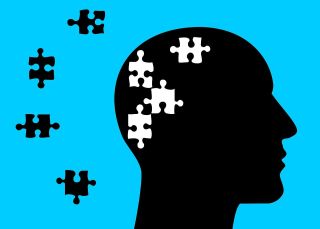Psychiatry
How Nutritional Psychiatry Informs Comprehensive Care
4 factors to focus on to improve treatment.
Posted May 17, 2024 Reviewed by Tyler Woods
Key points
- The foundation of mental health care lies in psychotherapy and medication management.
- Several key subsets play a significant role in mental health.
- Incorporating exercise, nutrition, and specific labs as part of routine practice can provide inclusive care.

Comprehensive healthcare is the idea of providing services that target a wide range or broad scope of clinical areas of interest. This can be seen with insurance companies, clinical testing, and treatment options. For example, when an insurance company states that they provide comprehensive coverage, they are providing a wide range of services at different tiers (hospitalization, outpatient, rehabilitation, etc.). When a doctor states that they're going to be comprehensive with testing, they may not only order standard blood work panels, but also order specialized tests or imaging to cover all grounds of presenting symptoms. Sadly, mental health treatment has somewhat lagged with respect to adopting a more comprehensive model. In part, this may be due to it being its own specialty and because a focus on the presenting symptoms takes precedence over the origin of symptoms. Nonetheless, below are several key areas that mental health professionals should consider when discussing symptomology with clients.
Exercise
There is nothing novel about the idea of exercise boosting mental health. In fact, most standard new client paperwork should ask about exercise and activity habits. According to Mikkelson et al. (2017) physiological effects of exercise can include an increase in endorphin levels, body temperature, mitochondrial function and mitochondriogenesis, an increase in the mammalian target of rapamycin (mTor) signaling, neurotransmitter production, and attenuation of the hypothalamic pituitary-adrenal (HPA) axis response to stress. But how often is exercise discussed in routine mental health visits, whether that be medication management or psychotherapy?
I once had a client who had seen at least five therapists before me. During one of our sessions, I dug more into his physical health and exercise routine instead of the generic “Are you physically active” and “How often” questions. I asked him to be more specific about what he does for exercise, frequency, what time of day, etc. Initially, he looked puzzled, stating that no prior therapist had asked these questions; he even said he thought he was there for a therapy session, not a “training session.” But what we uncovered was an inconsistency of physical exercise and his lack of psychoeducation regarding how a sedentary life impacts mental health symptoms. Over time, he was able to get a gym membership, increase his physical activity, and experienced a decrease in the intensity of his mental health symptoms. The topic of exercise and physical activity should routinely make its way into all healthcare appointments, including therapy sessions, and follow-up appointments for medication management.
Diet/Nutrition
Only recently has the association between diet/nutrition and mental health become a pressing topic. A pivotal study by Hibbeln (1998) demonstrated a strong correlation between fish consumption and decreased rates of depression. Further, a study by Su et al. (2014) found that reducing inflammation by increasing omega-3 intake could even prevent some types of depression. Rucklidge et al. (2017) found that certain micronutrients reduce impairment and improve inattention, emotion regulation, and aggression in children with ADHD. Additional studies have demonstrated strong correlations between sugar consumption and glucose levels, and increases in anxiety (Towler et al., 1993). Finally, many studies indicate a strong correlation between food additives/preservatives and psychiatric disorders (Xiong et al., 2024).
But how does this translate into comprehensive care? In a large Facebook survey, a group of therapists were asked how often they discuss diet and nutrition with their weekly clients, excluding clients who struggle with eating disorders. Only 26 percent of clinicians stated that they bring up the topic of nutrition on a regular basis, quantified by “several times per month.” A staggering 46 percent said that they would only bring up the topic of diet and nutrition if their client did first. The remaining 28 percent said they either bring it up occasionally, (once every few months) or rarely (once or twice during the entire length of counseling).
There is abundant information on the gut-brain axis, the microbiome, the importance of micro-diversity, and the field of nutritional psychiatry is getting a lot of attention; but perhaps there needs to be a stronger connection in discussing nutrition and its impact on mental health on a regular basis.
Specific Bloodwork
When an individual is struggling with low mood, sadness, anxiety, or fatigue, the first line of thought tends to be psychiatric. Perhaps it’s depression, maybe anxiety? This individual seeks out a therapist and possibly a psychiatrist for medication management. Maybe counseling is helping, and antidepressants are also doing their part, but perhaps the root cause is being missed.
There are several known blood tests that have a very strong correlation to mental health symptoms that are frequently missed:
- Thyroid. Psychiatric hypothyroid symptoms include fatigue, insomnia or hypersomnia, cognitive issues, low mood or depression, and anxiety. Psychiatric hyperthyroid symptoms include irritability, insomnia, anxiety, restlessness, impairment in concentration, and fatigue.
- Iron. Low iron levels can cause the following mental health symptoms: anxiety, heart palpitations, sadness, and depression.
- B12 and B vitamins. Low B12 levels or B12 deficiency can cause the following mental health symptoms: panic attacks, anxiety, depression, mania, listlessness, even hallucinations or delusions.
- Vitamin D. Low levels of vitamin D can cause the following mental health symptoms: fatigue, mood changes, low mood, hypersomnia, and depression,
- Omega-3. Low levels of Omega-3 can cause the following mental health symptoms: mood swings, depression, fatigue, and poor memory.
Incorporating some of these lab tests as standard practice can help provide comprehensive care to patients. And from a therapy perspective, making clients aware of the correlation between these labs and mental health functioning, or encouraging them to get their levels checked if it’s been a while.
Brain Mapping
An invaluable tool to assess brain functioning and mental health is brain mapping. Brain mapping technology allows a clinician to visually see which areas of the brain are experiencing dysregulation. Through this technology, clinicians can identify how the dysregulated areas correlate to certain mental health symptoms. For example, an image of a brain map that shows high levels of red on the anterior left side, known as F3, can indicate an excess of slow brainwave activity. This is typical of someone who struggles with depression. Clinicians can then develop a neurofeedback training protocol that is tailored to uptrain or downtrain certain brainwaves. The goal of this type of training is to regulate brainwaves into more optimal ranges, thus reducing symptomology. The limitation of brain mapping and neurofeedback is that it takes a specialized clinician to administer this technology, and many insurance companies do not cover these advanced services. However, it can be an excellent tool to utilize in comprehensive care.
Comprehensive healthcare includes mental health. In order to provide these services, clinicians need to not only be aware of these additional subsets but know how to address them with their clients. Staying up to date on literature, practices, and testing can help bridge this gap. It is a clinician’s duty to practice only within the scope of their knowledge and expertise, but this also means making necessary referrals when applicable. In addition to psychotherapy and medication management, assessing exercise levels, nutritional intake, relevant labs, and advanced testing can all aid in creating a more comprehensive mental health care system.
References
Hibbeln, J.R. (1998). Fish consumption and major depression. Correspondence 351 (9110), 12-13. https://doi.org/10.1016/S0140-6736(05)79168-6
Mikkelsen, K., Stojanovska, L., Polenakovic, M., Bosevski, M., Apostolopoulos, V. (2017). Exercise and mental health. Maturitas (106) 48-56.
Rucklidge, J.J., Eggleston, M.J.F., Johnstone, J.M., Darling, K., Frampton, C.M. (2017). Vitamin-mineral treatment improves aggression and emotional regulation in children with ADHD: a fully blinded, randomized, placebo-controlled trial. Journal of Child Psychology and Psychiatry, 59(3), 232-246.
Su, K. P., Lai, H. C., Yang, H. T., Su, W. P., Peng, C. Y., Chang, J. P., Chang, H. C., & Pariante, C. M. (2014). Omega-3 fatty acids in the prevention of interferon-alpha-induced depression: results from a randomized, controlled trial. Biological psychiatry, 76(7), 559–566. https://doi.org/10.1016/j.biopsych.2014.01.008
Towler, D.A., Havlin, C.E., Craft, S., Cryer, P. (1993) Mechanism of Awareness of Hypoglycemia: Perception of Neurogenic (Predominantly Cholinergic) Rather Than Neuroglycopenic Symptoms. Diabetes, 42(12), 1791–1798. https://doi.org/10.2337/diab.42.12.1791
Xiong, R.G., Li, J. (2024). Connections between food additives and psychiatric disorders. Psychiatric Times, 41(4).




